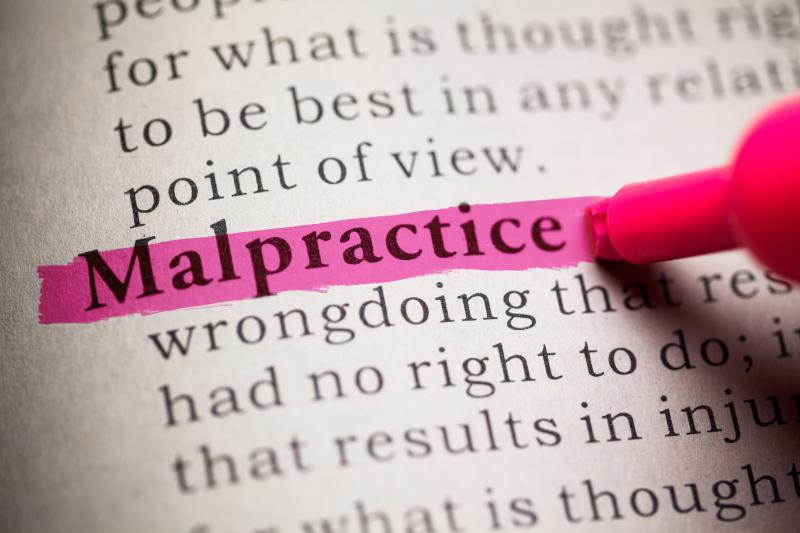Can You Sue A Psychologist For Malpractice?

Good mental health has a significant contribution to a person’s overall well-being. If you’re stressed, feeling anxious or depressed, overwhelmed, or perhaps burdened by a trauma, it shows. In some cases, these feelings may interfere with your everyday life or may cause an effect on your physical health.
For that reason, some people consider talking to a psychologist to help them better process their emotions. Talking to a professional about what and how they feel allows them to properly cope with their situation since a psychologist can help them navigate their concerns.
Considering the role a psychologist plays in your mental well-being, it’s only important that you’re consulting with someone who can best offer you the support and care you need. With that said, if you believe that you didn’t get the proper care or there was negligence on your psychologist’s part, then you may have the right to sue them for malpractice.
To start, this article will outline helpful insights to help you find more information and better understand professional negligence and malpractice claims and lawsuits.
Professional Malpractice Claims
Generally, a psychologist can be liable for medical practice as much as doctors and other medical practitioners are. For most medical professionals, errors or negligence on their part often results in physical injury and damage. While on the other hand, a psychologist’s negligence or intentional act can result in patient self-harm or harm to others.
Filing Malpractice Lawsuits Against Psychologists
As mentioned, your psychologist can cause you more harm either negligently or intentionally. In situations involving professional negligence, you’d have to comply with standard regulations and prove the elements of negligence to build your case. However, if it’s the latter and you believe that your psychologists have committed an intentional tort, the process to pursue a lawsuit may be different.
Here are a few important things to consider and keep in mind when filing a lawsuit against your psychologist under professional negligence:
- Submission And Filing Of Case
The statute of limitations or the deadline of submitting requirements to build a case is shorter than most medical malpractice lawsuits. For example, the court may require you to submit or file a case within one year, or the court will dismiss your case, even if you have all the evidence that will prove your claims.
Also, the statute of limitations may vary from state to state. Some states offer longer duration, and some may not. Failure to submit within the deadline might forfeit your right to be compensated.
With that in mind, whether the deadline is shorter or not, it would be best to act promptly and do your duties as a plaintiff as soon as possible.
- Following Special Procedures
Most states have varying procedures when it comes to malpractice against psychologists and therapists before you can file your case in court. You may be required to submit other documentation at the same time when you file the complaint.
These documents may include notifying the defendant of the charges against them, submitting a proposal for review, or filing a statement from an expert medical witness, proving the stand of your case. In some cases, the expert witness to your case would be another professional psychologist who can testify on your behalf.
- Proving The Breach Of The Duty Of Care
Much like pursuing a medical malpractice case, you’d also have to establish and prove that your psychologist has breached their duty of care. You might have to prepare concrete evidence to support your claim. But in some instances, getting a statement from another medical expert can be enough to prove your claim.
What Are The Damages You Can Recover From Them?
If you’re able to successfully prove your claims in court, you may be able to receive compensation for economic and non-economic damages, as well as punitive damages.
- Economic Damages
These are monetary losses you have sustained because of malpractice. These include past and future mental health expenses, past lost wages, and future lost earnings.
- Non-Economic Damages
Unlike the previous one, these are not based on monetary losses. It’s used to compensate for issues based on the pain, suffering, and emotional distress you have suffered.
- Punitive Damages
These are meant to punish the defendant, depending on the severity of their actions. Also, these are punishments to be paid on top of compensatory damages.
Final Words
Much like other medical practitioners, a psychologist’s errors can also cause detrimental effects to the patient. With that said, they can also be held liable for their mistakes, and you have the right to seek justice and proper compensation.
Pursuing a malpractice case can be tedious and overwhelming, and that’s where consulting a lawyer can be significantly beneficial. They can help you prepare all of the documents necessary to build your claims, and more so, give you advice on how best to approach your case.
More to Read:
Previous Posts:








